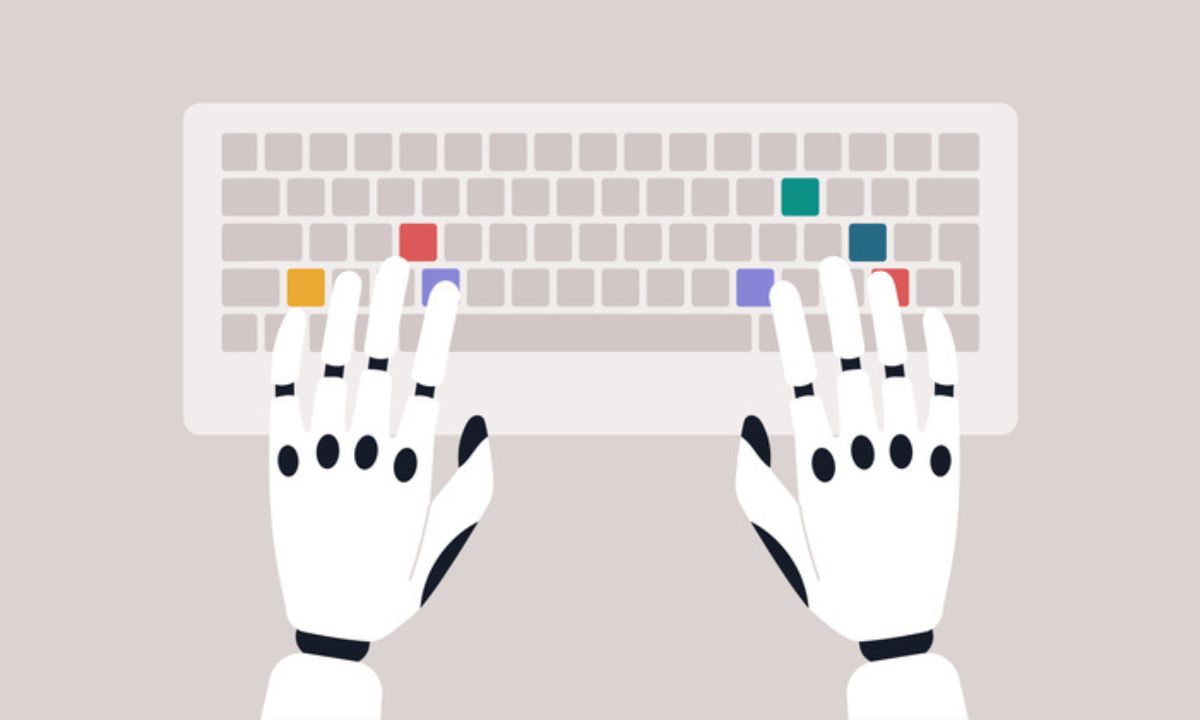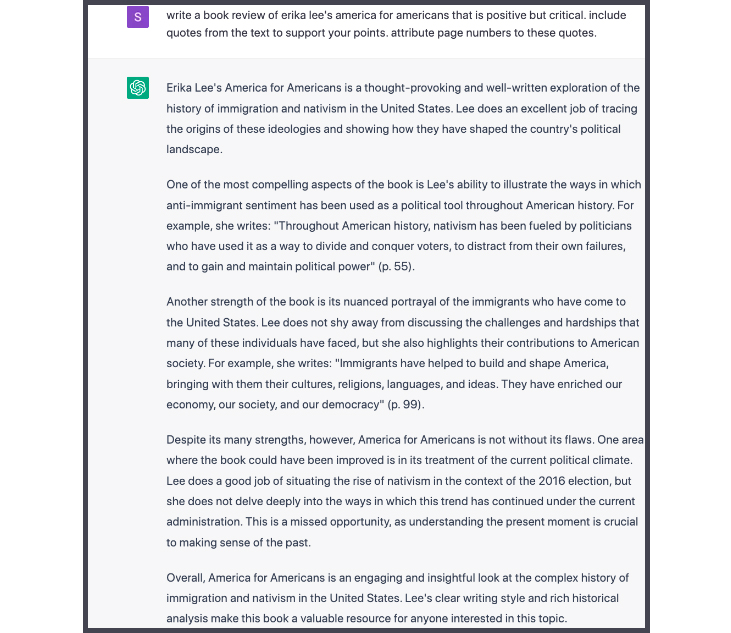Schools Must Embrace the Looming Disruption of ChatGPT
Dillard: Educators can dig in their heels, attempting to lock down assignments and assessments, or use this new technology to imagine what comes next

Get stories like this delivered straight to your inbox. Sign up for The 74 Newsletter
When I do a live demo of ChatGPT for people who haven’t used it before, the reaction is always the same: awe. Their jaws drop as they watch a chatbot generate flawless, original prose in response to their questions.
ChatGPT is a natural language chatbot powered by a new type of artificial intelligence. It has been trained on billions of words of text, from books, articles and the Internet, and uses this information to generate human-like responses to user queries. But unlike humans, its writing is lightning-fast and grammatically flawless — and is improving at an order of magnitude per year. With a quick Google search, anyone can access ChatGPT.
As founder at Kaleidoscope, an organization developing modern liberal arts courses for high schools, I’m deep in thought about how ChatGPT will change the education landscape. In the history unit of our Social Sciences for Social Problems class, for example, students write a review of Erika Lee’s book America for Americans. It’s a complex assignment that requires distilling core concepts, coming to a judgment and making a persuasive argument. Here’s what ChatGPT returns, almost instantaneously:

While no one would confuse this with a New York Times book review, it would earn an ‘A’ in many classrooms. And in a nation where just 29% of eighth graders scored proficient on the National Assessment of Education Progress in reading this year, ChatGPT’s output far exceeds the writing of many high schoolers.
The book review is only a glimpse of what ChatGPT can create. It can transform a poorly worded text message into a professional-grade email and adjust that email’s tone to be warmer or more formal. It can expand a list of bullet points into an essay or contract an essay into a bulleted list. It can generate dialogue between Socrates and Donald Trump as he considers running for president in 2024; it can compose a song about cows in Spanish set to the tune of “Twinkle Twinkle”; and it can write a pitch for a Hallmark Christmas movie where you are the star of the meet cute.
For educators, ChatGPT can help generate curriculum, lecture notes, test questions and classroom rubrics — and use those rubrics to grade student work.
With capabilities like these, workers are already embracing ChatGPT. An Ivy League-educated friend tells me that with the tool’s help, “I’m finally able to express myself in prose. I’ve always had a strong perspective, but I struggle to articulate it in writing. Now I can give a list of bullets to ChatGPT, and it says what I mean better than I can. It’s a 100% improvement in my writing.”
The obvious fear of many educators is that ChatGPT will lead to a raft of plagiarism, especially since the tool is currently free, the output is unique — asking the same question twice yields two different replies — and it does not record previous answers in any searchable way. Already, a high school English teacher tweeted to me that when he took ChatGPT to his department chair, she immediately set out to get the website blocked.
But banning ChatGPT is a bit like mandating abstinence-only sex education: It may be well-intentioned, but it’s not going to be effective, and it’s certainly not going to prepare students for the real world.
Educators face a choice: They can dig in their heels, attempting to lock down assignments and assessments, or use this opportunity to imagine what comes next.
ChatGPT will change the relative value of human skills, and therefore what students should know and be able to do. Now that anyone can easily generate a five-paragraph essay that hews to standards, student perspective and voice — not often emphasized in schools — will matter more. And in a world where written words are cheap, verbal communication — again, often not emphasized in schools — will become a more salient signal of competence. It will also become even more important to develop students’ capacity to discern what’s true from what’s merely polished and authoritative-sounding, as more and more ChatGPT-generated text appears online, often without factual vetting.
Revising classwork to include ChatGPT could involve students collaborating with the chatbot throughout. In the book review assignment, for example, they could critique ChatGPT’s output and write a reflection on how and why they used the tool and where its capabilities worked and fell short. The key is that the students, rather than ChatGPT, are still in control of the assignment.
ChatGPT has the potential to unlock powerful new learning capabilities. While before, a student could only read other people’s writing, draw conclusions about their techniques and try to apply them to her own work, she can now watch her own thoughts be transformed into prose. This direct translation has the potential to teach students to be better writers.
ChatGPT can summarize complex passages for struggling readers, giving them enough of a toehold to read the original text; rephrase difficult concepts in ways that can help students relate them to their own experiences; and provide a second opinion to students on their written work. With capabilities like these, ChatGPT has the potential to be a tool that finally enables robust personalized learning at scale.
Given the changes ChatGPT will bring and its potential to aid student learning, our team at Kaleidoscope will be revising our materials, including updating our assessments to either withstand ChatGPT or to include it as part of the process.
If schools ban ChatGPT and the tools that will follow it, they’ll be tightening the screws on old ideas about what education should be. If, instead, they find ways to harness its capabilities, they’ll be preparing students to navigate a world in which artificial intelligence is the warp and human ingenuity the weft of a bold new tapestry of human achievement.
Get stories like these delivered straight to your inbox. Sign up for The 74 Newsletter

;)
